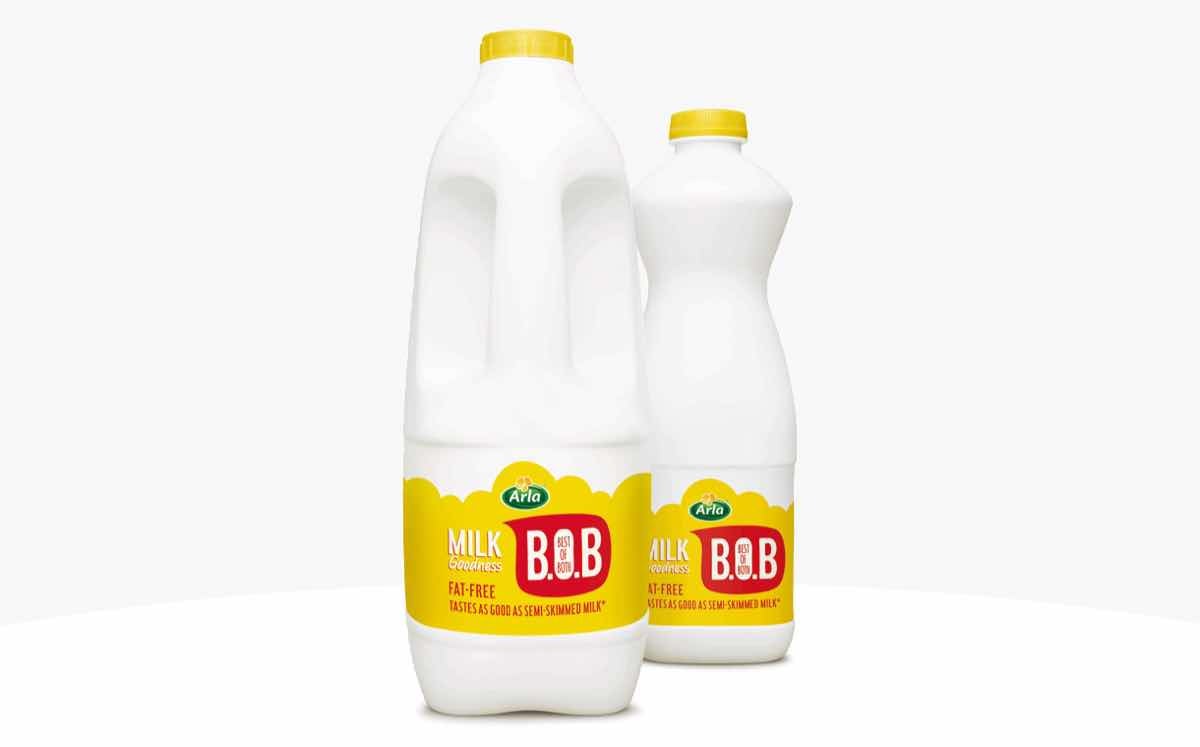
Arla Foods has cut its sales and profit guidance as inflation continues to weigh on the Danish dairy group’s branded volumes.
“As expected, the first half of 2023 was characterised by continued inflationary pressures, falling market prices for dairy products and a shift in consumer behaviour towards discount channels and private-label products,” the Cravendale milk brand owner said today (29 August).

Discover B2B Marketing That Performs
Combine business intelligence and editorial excellence to reach engaged professionals across 36 leading media platforms.
The cooperative expects inflation to “soften”, although the road ahead in the second half of its fiscal year “remains uncertain”.
CEO Peder Tuborgh explained: “We expect inflation and its impact on consumption patterns to continue to shape the rest of 2023 by putting pressure on branded product volumes in most markets. However, we expect that an increase in the underlying category growth will contribute to a slow recovery in branded product growth.”
Arla Foods’ “strategic branded volume” dropped 6% in the first half. Adjusted for the impact of the company’s exit from Russia, volumes by this metric would have been down 5.1%. Volumes fell 5.7% in Europe, which includes the UK, and declined 4% in the international segment.
Sales guidance for the full year was lowered to €13.2bn ($14.2bn) to €13.7bn, compared to the outlook delivered in February of €13.6-14.2bn. Profit as a percentage of revenue is expected at 2.8% to 3%, versus 2.8% to 3.2% previously.

US Tariffs are shifting - will you react or anticipate?
Don’t let policy changes catch you off guard. Stay proactive with real-time data and expert analysis.
By GlobalDataPrice increases helped drive 10.7% growth in first-half group revenue, which settled at €7.1bn. Branded product revenue was up 6.9%, with Arla noting a 7.2% increase for Lurpak and 3.6% for its own Arla brand.
Arla Foods’ net profit also dwindled in terms of margin – 1.5% compared to 3% based on a first-half result of €103m in revenue.
Arla Foods “protected shares”, CEO says
“We managed to protect our relative market shares against our competitors, and I am pleased that, as planned, we were able to secure the group's earnings, a competitive milk price and half-yearly back payment to our shareholders of 1.0 euro cents/kg of milk based on the half-yearly volumes,” Tuborgh said.
Arla’s average earnings based on the “value created” for each kilogram of milk from its farmers was up marginally – 0.1 euro cents per kilogram at 49.7 - but was “in line” with the opening six months of 2022.
However, compared to all of last year, earnings fell by 5.4 euro cents/kg.
“Driven by changes in market prices, Arla’s milk price fell from its highest level ever, trying to find its new level in a market where milk production is increasing while consumers are spending less,” the company said.
Arla’s out-of-home business also took a hit, with foodservice volumes down 1.8% after rising 19% in the year-earlier period.
Revenue in Arla’s European business division climbed 15.4% to €4.08bn and was up 3.6% in the international segment at €1.2bn.





